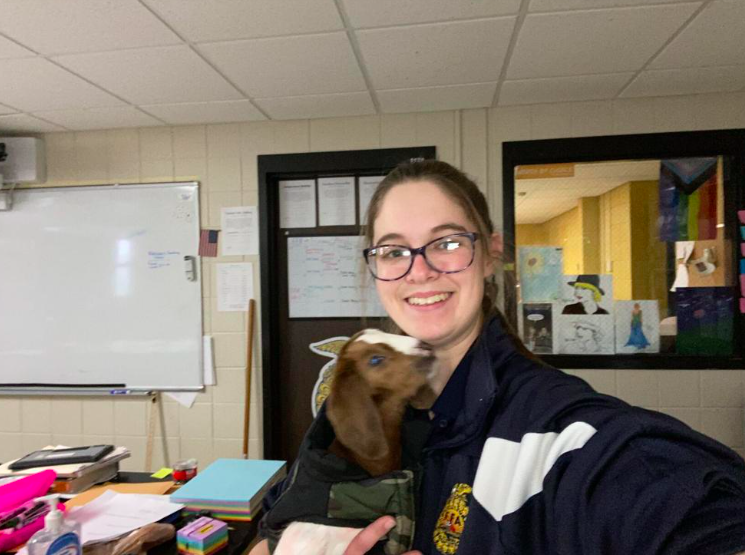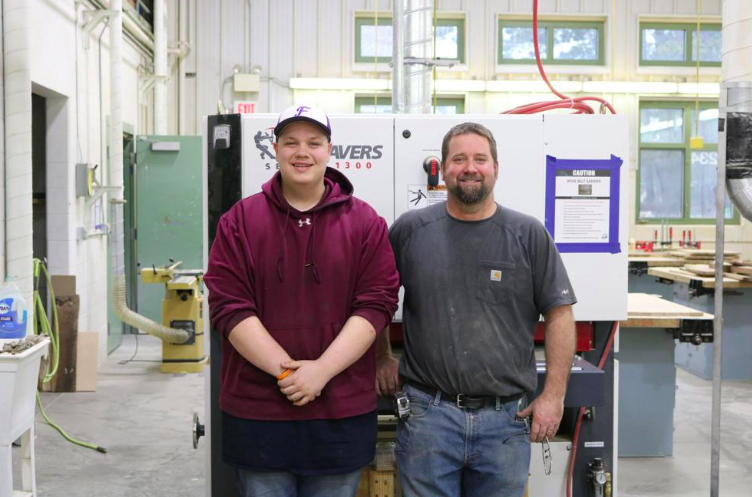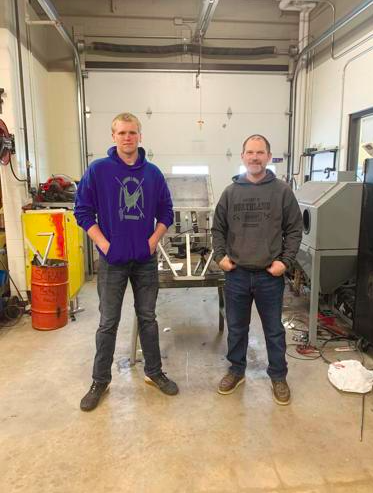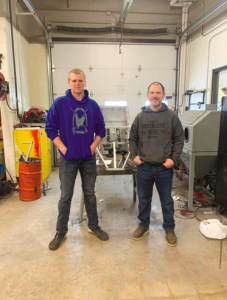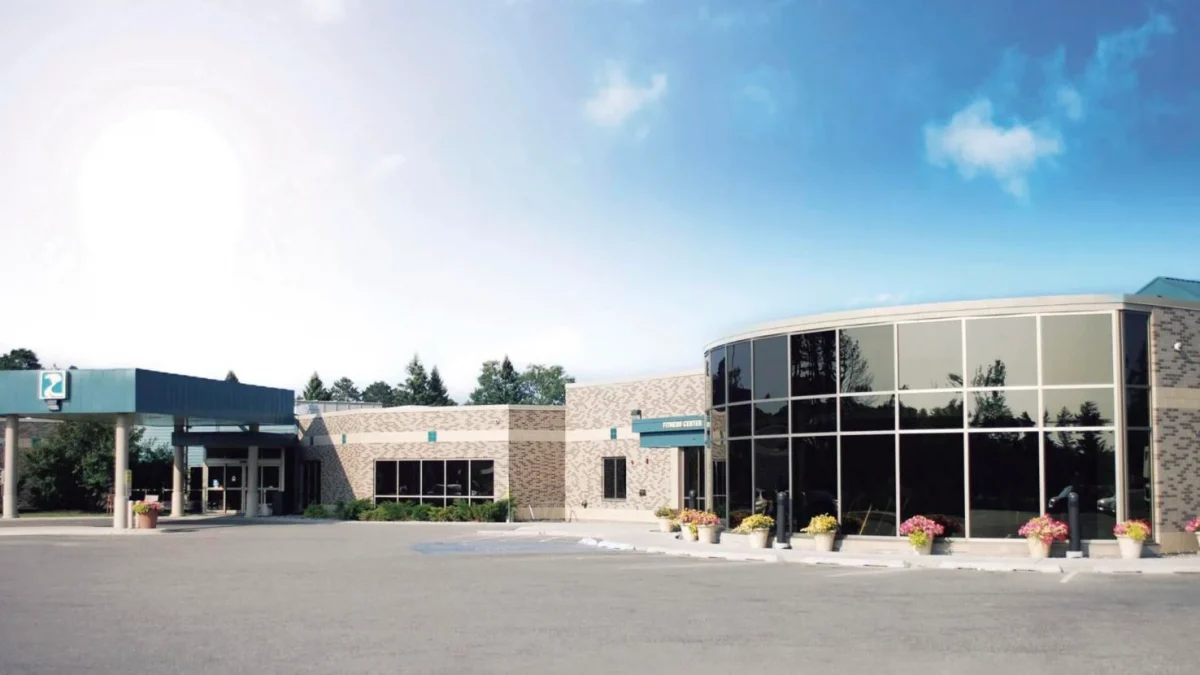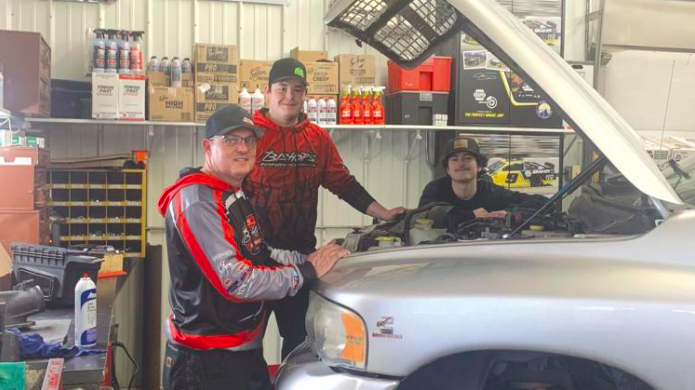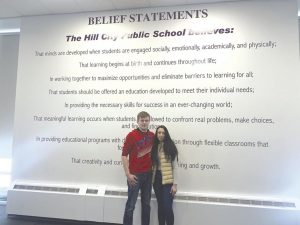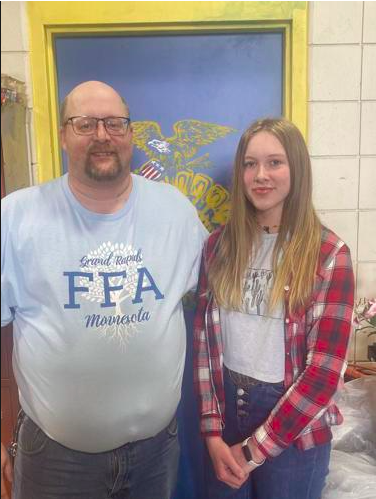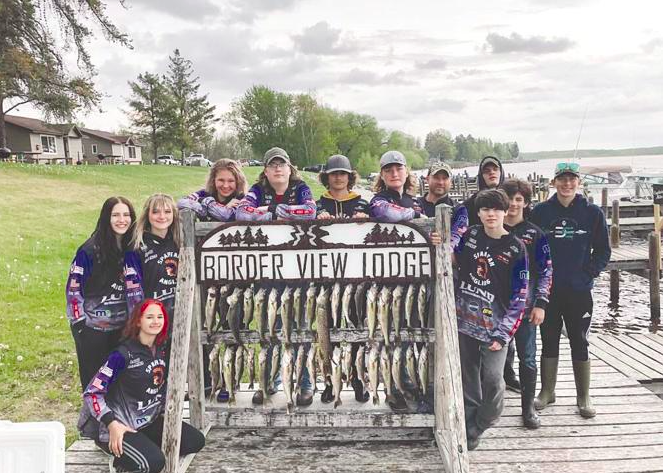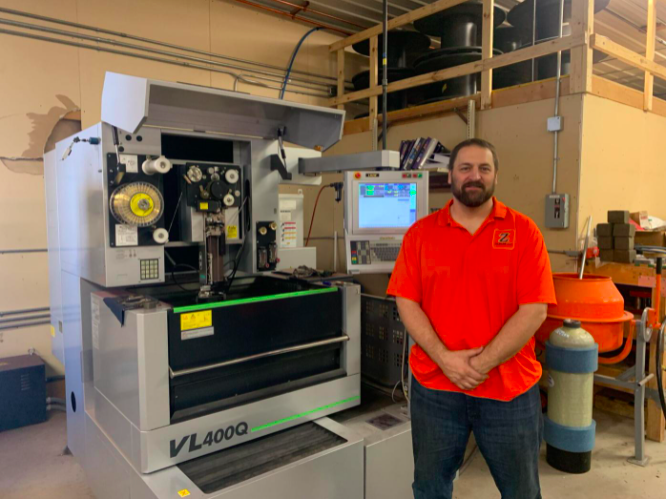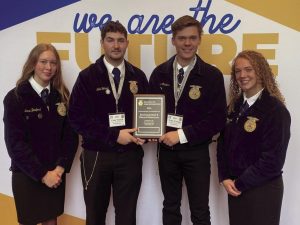By Emily Carlson Herald-Review May 8, 2022
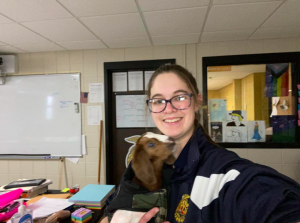
Continuing the Itasca Area Schools Collaborative (IASC) Next Career Pathways series, we will highlight individual schools and communities. For this final installment, we will turn our focus to the community of Deer River. Student Tia Schultz; Agriculture Education Teacher Hannah Eckblad; and Amber Kongsjord with RK Construction and Llyod’s Landscaping shared their perspective on being a part of the Career Pathways program.
Eckblad began her teaching career officially during the 2019-20 school year at Deer River. However, her passion for teaching began long before that.
“I’ve wanted to be a teacher since I could talk,” Eckblad shared. “So when I got into high school I got involved with FFA, and because of those hands-on experiences and being able to see opportunities beyond school, I really wanted to give that to kids. So naturally I just slid into agricultural education after that.”
Eckblad also worked as a camp counselor after high school. She worked at a Bible camp in Wisconsin and at the Wolf Ridge Environmental Learning Center in Finland, Minn. This was another chance for her to see how well-suited she would be for a career in teaching.
“Working with kids and giving them the different hands- on opportunities at camp and seeing their faces light up when they learned stuff, I knew that I was on the right career path. And there’s no doubt in my mind that this is where I want to be for the rest of my life.”
Falling under the Natural Resources and Agriculture Pathways, Eckblad teaches a wide range of classes at Deer River. Topics include wildlife, forestry, food science, plants, animals, and more. Eckblad also leads the Deer River FFA chapter and was able to take students to the State FFA Convention for the first time this year.
Eckblad had an interesting start to her teaching career as the world shut down and schools moved to distance learning in her first year of teaching. This continued into her second year of teaching with distance and hybrid learning models. Finally, this current school year has brought some sense of normalcy back into her classrooms and with that comes more excitement from her students.
“Being able to see kids get excited again because last year it was hard to do anything. No matter what it was,” Eckblad said.
A great example of this was when Eckblad’s students came to her with the idea to start a Conduct of Chapters team, which falls under the Parliamentary competition branch of the FFA. Eckblad, who was an avid participant in Parliamentary Procedure as a high school student, was willing and able to support those students.
With the last two school years being altered by the COVID-19 pandemic, emphasis on the Career Pathways program had to take a back seat. However, Eckblad shared that students do pay attention to what Career Pathways are and what classes are needed to fulfill a particular pathway when choosing their classes.
“They do read them, they do pay attention and there are kids who want to have that little check that they went through the career pathway,” Eckblad said.
Hand-on experiences are a key pillar to the Career Pathways program. Eckblad works with her students to choose a work-based learning project that will connect to their career interests. Some students get part-time jobs, some do job shadowing, and one student even started their own landscaping company. The main focus of these is to help the students test out new things.
“Seeing them find interest in things that they didn’t know they had interest in is super fun,” said Eckblad.
Looking toward the future, Eckblad is excited for the upcoming FFA Banquet where students will be recognized for their accomplishments. As for next year, she is looking forward to having a new hydroponic growing system, where plants can grow in just water and a nutrient system, ready for her classes to learn from. Eckblad hopes that the collaboration aspect of Career Pathways will continue to develop in the future as well.
“One of my favorite parts of Career Pathways is that collaboration piece,” Eckblad said. She continued, “If we team up with local schools and do what we do well, and pass some students around so students can experience what they are interested in, it’s going to increase opportunities for students and that’s our ultimate goal.”
Tenth grader Tia Schultz has taken classes in both the Healthcare and Education pathways. Being able to learn about different careers that she is interested in has already helped narrow down what she might do in the future.
“Before I was really set on going to be a nurse or a doctor, and I think that now it’s not something I want to do,” Schultz said.
As a part of the Education Pathway classes Schultz has taken, students select a teacher to be their mentor to job shadow. She chose her mom, Kari Schultz, who is a special education teacher at Deer River schools. Tia shared that she was able to work with students in her mom’s classroom, and even though the class is over, she still enjoys going to her mom’s classroom everyday.
“I don’t think I would have ever thought that I wanted to go into something like teaching or special education before, but now I love it,” Tia said.
Tia also mentioned that she really enjoyed learning from her teacher Sondra Tokarczyk, Instructional Coach and Education Careers Exploration Instructor. In her Education pathway classes she has learned more about the details of becoming a teacher, what the job entails, how much schooling is needed, and more. Beyond that she has done job shadowing, independent research and other activities. Tia said that being able to work with people in-person, rather than distance learning has been nice.
“That was actually really nice, getting to know some of the other people and interacting with them,” Tia said.
This summer Tia plans on working as a cabin cleaner and coaching for the Grand Rapids Special Olympics softball team. Although she still has a couple years left of high school, she believes that the experience of trying a Career Pathways has helped her find new interests.
“I really liked the Career pathways class that we had to do. Just because you don’t really know. You don’t really have any experience. You kind of have a general idea of what you want to do in high school, but if you don’t have any way to test out those things and get out,” Tia commented. “I think this gives you a better grasp of what you want to do.”
Amber and Llyod Kongsjord own RK Construction and Llyod’s Landscaping based out of Marcell, and their children attend Deer River schools. Additionally, both do a lot of coaching for the Deer River FFA team and specifically work with the Nursery and Landscaping teams once a week.
“The kids that were in the nursery and landscaping team, they’ve come and they’ve worked for us,” Amber shared. “They’ve come to get to experience it hands on.”
While the hands-on experience for students is beneficial, it can be tough for businesses to take time out of their schedule to work with the students.
“It’s an interesting place where we work because it’s very seasonal. You have to make your income in such a short amount of time, but sometimes you just have to slow down and reach out to the younger generation and teach them,” said Amber. “I think that’s the hardest thing for businesses to stop and do.”
However, Amber added that they continue to learn alongside the students when working with them. She also sees the benefits of giving students the chance to try something new.
“It’s about being able to get kids experience,” Amber said. “You need these experiences and I think that’s the biggest key for any career path. Without the experience it’s really hard to be able to know if you’re going to enjoy that.”
Whether or not the student finds their dream career while working through Career Pathways, there will certainly be something they can take away from the experience.
“The kids that are learning this, they get to keep it forever,” Amber stated. “It’s a pretty cool reward to give our passion to some young kids and maybe make it their passion. I think that’s the biggest thing that we get out of it.”

